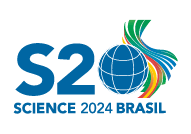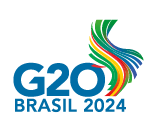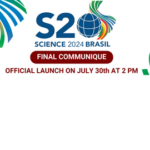Without science, there is no social justice: at the G20, Brasil is setting an example for the world
*Article originally written for G20 Brasil
In March, on the eve of the inaugural meeting of Science 20 (S20), the G20’s science and technology engagement group, I said that Brasil had the opportunity to make a difference by chairing the group – which comprises the 19 largest economies in the world, together with the European Union and the African Union. Five months later, this difference can already be observed in practice.
After a series of debates, scientists from the world’s most powerful nations finalized a report in July with recommendations for tackling challenges that affect everyone. Although it is a document signed by most countries, there is a genuinely Brazilian element in the statement based on the topics addressed and the way the entire process was conducted.
By assuming the mission of organizing the S20, the Brazilian Academy of Sciences sought to reinforce the importance of the participation of science in the planning and decision-making process on issues that affect society. Hence the theme “Science for Global Transformation”, divided into five task forces: artificial intelligence, bioeconomy, energy transition processes, health challenges and social justice.
These were not randomly chosen themes. In common, they represent axes of the 2030 Agenda, a United Nations agreement signed by 193 countries that established goals to eradicate poverty and protect the environment – but still far from being achieved. We started the work by reminding the countries about the importance of enforcing this agreement. We have also highlighted some of the challenges that have frequently made the headlines, such as the regulation of artificial intelligence.
The final report of the S20 expresses the need to establish AI regulations. It also warns about the importance of creating flexible policies to guarantee job security and workers’ rights, whilst allowing space for innovation, which is necessary for economic development.
The text also proposes to create facilities and infrastructure shared by countries that would together develop projects that meet the demands of nations in the area. Given the strength of big techs, with market-driven goals, we can come together to create mechanisms that can make AI more accessible – and effectively useful for social demands.
To this end, the document recommends the creation of regional research and data sharing centers, as well as intergovernmental structures that can oversee technologies capable of operating beyond human control.
In the bioeconomy sector, new contributions are also being made. By suggesting a unique concept and criteria for the supply of goods derived from renewable biological resources, scientists help to resolve a worldwide impasse in discussions about new policies. They also add political substance to the concept, such as defending the participation of indigenous and local communities in decision-making. Finally, they propose to build international and multilateral cooperation around the theme, which may be the necessary kickstart for leveraging this form of economy and recognizing its role as one of the strategies in the face of climate change.
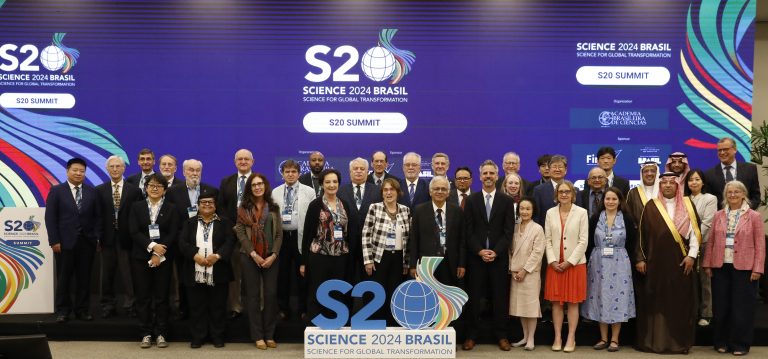
Support for research on energy transition is necessary and urgent
The report addresses another of the decisive strategies in the face of the climate crisis: the energy transition. The history of the different G20 countries – which includes nations where oil is the main economic force – has made energy transition the most debated topic by S20 scientists. Discussed word by word, the statement reinforces the need to move towards the elimination of coal and highlights the importance of adopting mechanisms to minimize emissions.
Although necessary, it is known that the transition to a green economy unfortunately will not occur as quickly as we would like, and fossil fuel will still be in use for a long time to come. Therefore, we reinforce in the statement the incentive to use new forms of energy and warn about the need for investments in research that can boost the energy transition. More than ever, science support is needed to reduce the cost of removing CO2 from the atmosphere and to develop additional alternatives.
The report also provides recommendations on other challenges that affect people’s daily lives, such as ensuring health quality, equity and access. To achieve this, the promotion of universal health coverage, added to the prevention and preparation for pandemics, as well as actions to advance digital health, the prioritization of mental health and tackling the impacts of climatic events on the health system – such as the recent floods in the South of Brasil – are fundamental points.
At S20, we also reinforced the countries’ commitment to poverty eradication and inclusion, as well as acting on new demands, such as the need to advance digital literacy and promote campaigns against disinformation.
Without science, there is no social justice. I take this opportunity to also emphasize and defend the importance of science having its final ultimate goals directed towards the well-being of society. A message that I believe we were able to convey in the S20. When we proposed social justice as one of the task forces, many institutions, focused on the so-called “hard sciences”, initially responded to Brasil that they could not collaborate on the theme. In the end, they not only endorsed the proposal, but also sent new contributions with support from their peers. It is a recognition that the ultimate goal of science is similar to everyone.
In addition to looking at social justice, the Brazilian edition of S20 focuses on other purposes, such as the warning for countries to anticipate demographic changes – a factor that impacts health, education and social security, as well as the economy.
This alert indicates Brasil’s concern to not only consider demands as a whole but also individually. The G20 is a group of countries diverse in demographics, per capita income, number of inhabitants and investment in science and technology. When discussing the recommendations at the Summit, we advocated for the search of common goals as our ideal.
Brasil is submitting a document that is characterized by concern for scientific rigor and a search for consensus, the basis for good diplomacy – which makes the final communiqué more likely to be considered.
It is also important to highlight that, since the beginning of the debates, the Brazilian government has been interested in welcoming the suggestions of S20, without interfering at any time in our decisions. An example of how to make society’s participation in the debates count.
The process now enters a new phase. With the report prepared by the S20 and other engagement groups already delivered, it is up to Brasil to incorporate the warnings and proposals from science and other social axes into its final recommendations to the heads of state.
Science doesn’t have all the answers to the world’s problems. But without science, there is no innovation, nor development. And without science, there is no social justice, a phrase I emphasized at the S20, and I will continue to repeat it as long as necessary.
Brasil is good at science – and does it for society.
